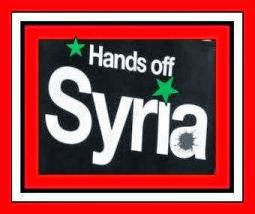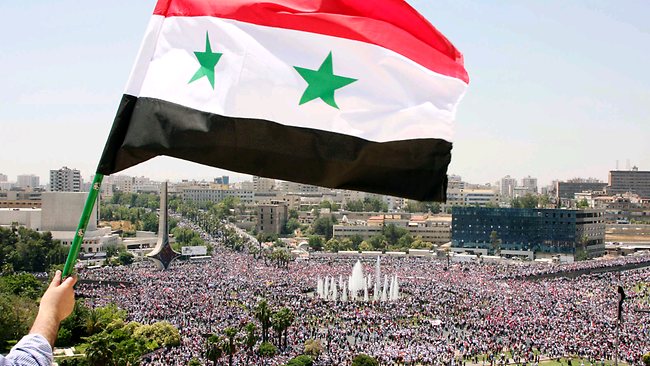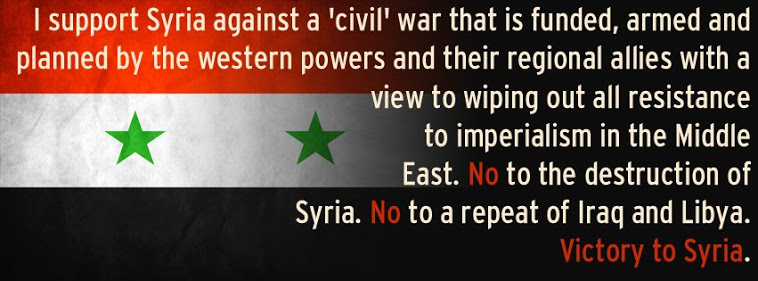As darkness fell on the bus depot, the doctor, the fighter and the law student stood in a corner, chain-smoking Gitanes and speaking rapidly into mobile phones. Minutes later, a black Mercedes saloon with tinted windows pulled up and all three got in.
The men, in their mid-to-late 20s, had been sent by the Free Syrian Army, which is operating under an EU and US embargo on weapons sales to Syria’s rebels, on a mission to buy supplies and bomb-making equipment in Turkey.
They were to take their purchases across the border into Aleppo Province, where they would be used on the front line of the war to depose president Bashar al-Assad. One of dozens of well-organised logistics teams dispatched to Turkey each week by the FSA, the men form part of the rebels’ attempts to keep improvised munitions flowing.
The driver, a young man with spiky hair and wearing a white and blue pin-striped shirt, announced to the others, “I’m Pizza Boy. I deliver everywhere and anywhere!” He pulled out his mobile phone and, chuckling as he scrolled through his contact list, asked, “What’s it to be today? Explosions, communications, defence equipment?”
“We need various things,” said the demure, understated fighter. He was a small man in skinny jeans, green jumper and a black and white keffiyeh scarf, his stature and quiet personality belying a skilled warrior. His colleagues claimed he single-handedly destroyed 15 tanks with rocket-propelled grenades in the last six months. “Then you need Big Uncle,” replied Pizza Boy, after a moment’s thought.
The Mercedes travelled a few blocks before coming to a busy market street. The doctor, bespectacled and earnest, got out. “I’ve arranged to meet a contact and buy antibiotics and blood. Tomorrow, I’ll hide the supplies, wrapped in silk shawls, and take them across the nearest border crossing to one of our field hospitals in Aleppo,” he explained before disappearing into the night.
The car sped off through the dark streets, and 10 minutes later the two remaining men got out at a dilapidated residential building and went up two flights of stairs, where they were greeted by a tall, thickset man in his 50s sporting a neat triangular moustache above an easy, confident grin.
Saudi support
Hassan “Big Uncle” Assaf greeted the men warmly and took them through to a sparsely furnished sitting room. On a table were samples of two of the main items they had come for: green phosphate powder and a bag of explosive pins, two essential ingredients used by the rebels to build artillery shells, rockets and bombs.
“Everything we buy here in Turkey is legal,” Hassan claimed. “That’s how we have to operate. The green powder is widely used as fertiliser for aubergines, the pins are extracted from the bullets for hunting rifles, and the aluminium powder we use is a common construction material.
“We have a Turkish contact with a warehouse where we stockpile everything, and then teams come through to pick up supplies and take them over. Rich merchants from Saudi Arabia send us money every month, via Western Union, to keep the whole thing afloat.”
Sitting beside Hassan was the mechanical engineer, Emre Abu Isra, a key player who has designed many of the group’s improvised weapons.
The logistics team is to take the materials across the border to the town of Tal Rif’at, Emre said, where they will be delivered to “The Candy Factory”, a makeshift workshop in which 200 shells and 20 rockets are produced each day.
“We use a C8 Bulgarian moulding machine to produce the casings,” he said, “this yummy stuff here, combined with animal urine, as explosives”, indicating the fertiliser, “and then we fire the mortars and rockets out of specially adapted water pipes mounted on an aluminium base equipped with the explosive pins to provide propulsion”. It has taken time to perfect the improvised rockets . “The first soldier to fire one actually lost his leg when the rocket went full circle and came back on him!” said Emre. But the latest versions are “100 per cent accurate”, he claimed.
Hassan said, “Tonight we eat and sleep – tomorrow we’ll see about getting you everything you need.”
Early the next morning, the group gathered in the city centre, where they entered what seemed to be a convenience store. Women stood studying shelves of perfumes and shampoos, but through a narrow section at the back a larger room full of military supplies came into view: flak jackets, radios, rifle scopes and binoculars. The first order was for radios, or “fists” as the logistics team called them. They bought 20.
Vital component
Then the waiting game began for the main objective of the mission: a 50kg barrel of aluminium powder, a vital component for making explosive devices capable of piercing armour and even of crippling tanks.
In the end it took all day – the sun had set before the call came in. Pizza Boy took the team to a warehouse at the edge of the city. The barrel was slowly rolled out and placed in the boot of the car.
Throughout the day the atmosphere had been jovial. Now the men faced the long and dangerous journey back to Syria across a smuggling route. Cigarettes were popped into mouths and a mix tape of techno and hip-hop inserted into the stereo, as Pizza Boy set off from Antakya to the border town of Kilis, never driving below 90 miles per hour.
As they approached the border crossing of Bab Al-Salaam, the fighter called a contact. “We’ll be there in 20 minutes,” he said. “Yes we will”, said Pizza Boy with a wink, “because no one knows this route like I do”
First published: Wed, Nov 14, 2012











